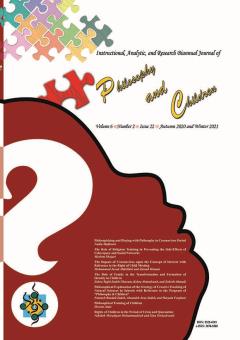-
-
List of Articles
-
Open Access Article
1 - Editpr's Note
Zohreh Hosaini Khamenei -
Open Access Article
2 - Philosophizing and playing with Philosophy in Coronavirus Period
Nadia Maftouni -
Open Access Article
3 - The Role of Religious Training in Preventing the Side-Effects of Cyberspace and Social Networks
Moslem Moslem Shojaei -
Open Access Article
4 - The Impact of Coronavirus upon the Concept of Interest with Reference to the Right of Child Meeting
Mohammad Javad Abdollahi Zainab Zainab Hatami -
Open Access Article
5 - The Role of Family in the Transformation and Formation of Identity in Children
Zahra Taghyzade Ghavam Kobra Ahmadvand Zohreh Zohreh Ahmadi -
Open Access Article
6 - Philosophical Explanation of the Strategy of Creative Teaching of Natural Sciences in Schools with Reference to the Program of “Philosophy & Children”
Fatemeh Bandalizadeh -
Open Access Article
7 - Philosophical Training of Children
Hosein Ataie -
Open Access Article
8 - Rights of Children in the Period of Crisis and Quarantine
sina Turkashvand
-
The rights to this website are owned by the Raimag Press Management System.
Copyright © 2017-2026







